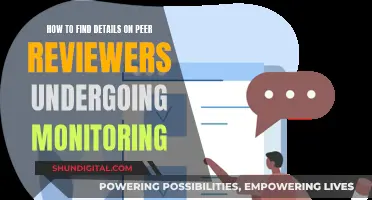
Supplemental Security Income (SSI) is a US government program that provides financial assistance to individuals with limited resources. To be eligible for SSI, applicants must disclose their financial information, including bank accounts, and the SSA (Social Security Administration) may request further financial information at any time if they suspect a change in the recipient's financial situation. While the SSA does not routinely check bank accounts, it does periodically review eligibility, which can include checking financial status. This review can occur every one to six years, depending on the individual's circumstances, but may happen more frequently if significant changes occur. The SSA also uses a system called Access to Financial Institutions (AFI) to electronically verify bank account balances and detect undisclosed accounts. However, it's important to note that SSI does not monitor or restrict specific transactions or purchases made by recipients.
| Characteristics | Values |
|---|---|
| Does SSI monitor what you buy? | No, SSI does not monitor what you buy. |
| Do financial institutions share transactional data with SSI? | Financial institutions may share transactional data with government agencies when required by law. However, strict privacy laws govern this information sharing, and it is not specific to SSI recipients alone. |
| How often does SSI check bank accounts? | The Social Security Administration (SSA) does not routinely check bank accounts for SSI eligibility. However, they have the authority to request financial information at any time if they suspect changes in an individual's financial situation. |
| What information must be provided when applying for SSI? | When applying for SSI, individuals must provide information about their finances, including bank accounts. |
| How often does SSI review eligibility? | SSI reviews eligibility periodically, which can occur every one to six years, depending on the individual's situation. However, reviews may happen more frequently if there are significant changes in circumstances. |
| What is the Access to Financial Institutions (AFI) process? | AFI is an automated process that verifies bank account balances and detects undisclosed accounts to identify potential excess resources held by SSI applicants, recipients, and deemors. |
| What happens if permission to contact financial institutions is not granted? | If permission is not granted to contact financial institutions, individuals may become ineligible for SSI payments. |
What You'll Learn

SSI does not monitor purchases
The Social Security Administration (SSA) does not routinely monitor the purchases of SSI recipients. While they do have the authority to request financial information at any time if they suspect a change in financial situation, they are primarily concerned with verifying bank account balances and ensuring compliance with resource limits for SSI eligibility.
When you initially apply for SSI, you must provide information about your finances, including bank accounts. The SSA then periodically reviews your eligibility, which can occur every one to six years, depending on your situation. This review may happen more frequently if there are significant changes in your circumstances.
The SSA uses a system called Access to Financial Institutions (AFI) to electronically verify bank account balances and detect undisclosed accounts. They may request account information directly from banks if deemed necessary. However, this process is not for monitoring individual transactions or purchases made by SSI recipients.
To protect the privacy of beneficiaries, the Electronic Benefit Transfer (EBT) system is often used to distribute SSI funds. EBT cards function like debit cards, allowing individuals to make purchases discreetly without disclosing transaction details to others.
While financial institutions may share transactional data with government agencies when required by law, this information sharing is governed by strict privacy laws and is not specific to SSI recipients alone. There is no constant monitoring of individual accounts or purchases made by SSI recipients.
Setting Up Studio Monitors: Interface Connection Guide
You may want to see also

Financial institutions may share transactional data with government agencies
In the United States, financial institutions may share transactional data with government agencies under specific circumstances. The Gramm-Leach-Bliley (GLB) Act of 1999, for instance, governs how banks can share personal information about consumers. While the Act prohibits disclosing certain private information, such as Social Security numbers, income, and specific outstanding debts, it also allows for the sharing of publicly available information, such as phone numbers and addresses.
Additionally, the Bank Secrecy Act requires financial institutions to report information to the federal government for law enforcement to investigate potential crimes, such as money laundering. This involves submitting reports on suspicious activity, which can be labour-intensive for financial institutions. While feedback on the usefulness of these reports is desired, it is not consistently provided by the relevant agencies.
In the context of Supplemental Security Income (SSI), the Social Security Administration (SSA) requires applicants and recipients to provide permission to contact financial institutions and request financial records as a condition of eligibility. This permission allows the SSA to determine SSI eligibility and payment amounts. The financial institutions covered by this requirement include credit card issuers, savings associations, consumer finance institutions, and more.
While individuals can cancel this permission in writing, doing so will result in ineligibility for SSI payments. This condition highlights the direct connection between financial institutions and government agencies in sharing transactional data, specifically in the context of SSI eligibility and payments.
Monitor Refresh Rates: How to Measure Speed
You may want to see also

Applicants must give permission to contact financial institutions
The Social Security Administration (SSA) requires applicants to give permission to contact financial institutions to be eligible for SSI payments. This is outlined in the Code of Federal Regulations § 416.207. By giving this permission, applicants authorise the SSA to request any financial records pertaining to their relationship with the financial institution. This includes information such as account numbers, transaction history, and credit scores.
Financial institutions, as defined by the Bank Holding Company Act of 1956, include banks, securities brokers and dealers, insurance underwriters and agents, finance companies, mortgage bankers, and even travel agents. This broad definition ensures that a range of institutions can be contacted by the SSA if necessary.
The permission granted by the applicant remains in effect until a terminating event occurs, such as the applicant cancelling their permission in writing, a change in the applicant's relationship with any 'deemors' (whose income and resources are considered available to the applicant), or the applicant's SSI application being denied.
It is important to note that applicants have the right to withhold consent, and their consent should not be a condition of doing business with any financial institution. Additionally, if an applicant revokes consent, it will only be effective after the three-month period from when consent was initially given.
The SSA may ask financial institutions for information to determine an applicant's SSI eligibility or payment amount. This information can include details about the applicant's financial accounts and any financial accounts for anyone whose income and resources are considered available to the applicant.
The Gramm-Leach-Bliley Act, enacted in 1999, also governs the treatment of nonpublic personal information by financial institutions. This Act prohibits institutions from disclosing nonpublic personal information to nonaffiliated third parties without meeting specific notice and opt-out requirements.
In summary, applicants for SSI payments must give permission to the SSA to contact financial institutions and request financial records. This permission is essential for determining SSI eligibility and payment amounts, and it remains in effect until specific terminating events occur. Applicants have the right to withhold or revoke consent, but doing so may impact their eligibility for SSI payments.
Monitoring Employee Internet Usage: Security or Surveillance?
You may want to see also

The SSA periodically reviews eligibility
The Social Security Administration (SSA) is required by law to periodically review the case of every person who receives disability benefits. This process is called a Continuing Disability Review (CDR) and is conducted to identify recipients who might no longer qualify as disabled. During a CDR, the SSA will review the individual's medical impairment(s) to determine if they continue to have a disabling condition. If the SSA concludes that the individual is no longer disabled or blind, their benefits will be discontinued.
The frequency of CDRs depends on various factors, such as age and the likelihood of medical improvement. For individuals with a condition that is expected to improve, a CDR may be scheduled sooner than three years. On the other hand, if someone has a permanent condition that is not expected to improve, their claim might be reviewed less frequently than every seven years. People under 50 will have their claims reviewed more often than those over 50.
In addition to regularly scheduled CDRs, the SSA may conduct a review in certain situations, such as when an individual returns to work, informs the SSA of medical improvement, or when new treatments for their condition become available.
During a CDR, the SSA will request updated information about the individual's condition using the SSA-454 (Continuing Disability Review Report) or SSA-455 (Disability Update Report) form. The SSA may also ask for evidence of ongoing, medically necessary treatment, particularly in the case of children receiving SSI disability benefits.
The SSA will also review the individual's income, resources, and living arrangements during a CDR to ensure they continue to meet the non-medical program requirements. This periodic review is called a Redetermination. To be eligible for SSI payments, individuals must provide the SSA with permission to contact financial institutions and request financial records.
Easy Monitor Driver Installation Guide for Asus VG248QE
You may want to see also

The SSA uses the AFI system to verify bank account balances
The Social Security Administration (SSA) uses the Access to Financial Institutions (AFI) system to verify bank account balances. AFI is an automated process that verifies bank account balances with financial institutions to identify potential excess resources in financial accounts held by SSI applicants, recipients, and "deemors" (those whose income and resources are considered available to the applicant). This process helps the SSA detect undisclosed accounts and prevent overpayments.
AFI is used during the initial SSI application process and later reviews of eligibility to ensure that applicants and recipients are within the resource limit for SSI. By examining alternatives to traditional asset verification practices, such as recipient self-reporting and direct contacts with financial institutions, the SSA aims to reduce errors and improve the accuracy of SSI payments.
The AFI system conducts electronic searches of about 96% of the financial institutions where SSI recipients have a direct deposit account. It provides the SSA with independent data on a recipient's financial accounts, which is used to periodically redetermine their eligibility for payments. This helps the SSA identify undisclosed bank accounts and prevent overpayments or underpayments.
AFI also helps the SSA address one of the major factors associated with SSI overpayments, which is the unreported value of recipients' financial institution accounts. By using AFI, the SSA can obtain timely and accurate information about recipients' financial accounts and wages, improving the accuracy of SSI payments and reducing improper payments.
The SSA has taken steps to integrate AFI into its SSI case processing system, lowering the AFI threshold, and increasing the number of undisclosed bank account searches to enhance the accuracy of SSI payments.
Removing HP LCD Monitor Stands: A Step-by-Step Guide
You may want to see also
Frequently asked questions
No, SSI does not monitor what you buy. Your purchasing choices remain private. The EBT system adds an extra layer of privacy, allowing you to make purchases discreetly.
The Social Security Administration (SSA) does not routinely check your bank accounts for SSI eligibility. However, they do have the authority to request financial information at any time if they suspect your financial situation has changed.
SSI monitors your financial accounts during the initial claims process and later reviews of eligibility to ensure that you are eligible for SSI. They also monitor your income, resources, and living arrangements.
The SSA periodically reviews your eligibility, which can occur every one to six years, depending on your situation. However, reviews may happen more frequently if there are significant changes in your circumstances.
If you do not give permission to monitor your financial accounts, you will not be eligible for SSI payments.







